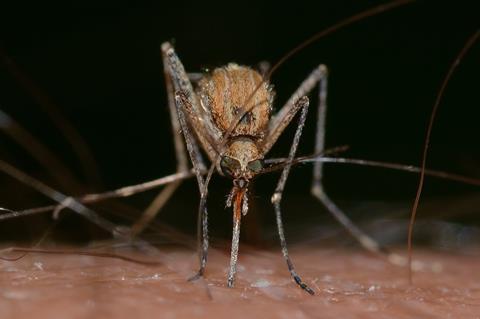Keele University is to create a new purpose-built insect research laboratory on its campus – where scientists will carry out vital research to tackle the spread of deadly diseases and reduce crop losses to pests in the UK and across the globe.

The new laboratory will be developed with the help of a £623,000 grant from the Wolfson Foundation, which will enable Keele to further enhance its international reputation as a world leader in entomology.
The facility will feature seven environmentally controlled walk-in chambers to house a range of insects. The chambers will be fully insulated and programmable to create and maintain precise climate conditions, including sunlight, humidity and temperature controls.
Mosquito-borne diseases
The laboratory will allow scientists at Keele to advance their studies of insects and their relationship to humans, the environment and other organisms. This work aims to discover new and improved ways of halting the spread of deadly mosquito-borne diseases, and the destruction of crops by insects.
Professor Mark Ormerod, Deputy Vice-Chancellor and Provost of Keele, said: “I’m delighted that we have secured significant funding from the Wolfson Foundation to help fund our new insect-research laboratory in the School of Life Sciences. Our current insectary facility underpins much of the entomology research at Keele but to sustain and build on our internationally leading position and reputation for entomology research at Keele, we need to invest in a new laboratory.
“This new insectary will provide a step-change increase in the quality of facilities to support current and future entomology projects, enable future studies, maintain a strategic capability, and continue to further enhance Keele’s international reputation as a world leader in entomology.”
Tackling malaria
Pip Beard, Professor of Viral Pathology and Head of Keele’s School of Life Sciences, said: “Keele has a long track record of excellence in entomology. The research carried out at Keele has provided novel, environmentally-sound solutions to insect pest problems such as genetically modified mosquitoes to interrupt the spread of malaria, and synthetic pheromones to reduce crop losses due to thrips.
“The University has identified fundamental and applied entomological research in Life Sciences, Chemical Ecology and Global Health as one of its major areas of research excellence and a key strategic target for further investment. We are moving forward rapidly in this area and have made significant institutional investment in new research-led academic appointments at all levels in the area, to build capacity and excellence. These appointments are underpinned by continuing strong growth in our undergraduate and postgraduate student numbers in biosciences in recent years.”
Investing in science
The Wolfson Foundation is an independent charity with a focus on research and education. Its aim is to support civil society by investing in excellent projects in science, health, heritage, humanities and the arts.
Since it was established in 1955, some £1 billion (£2 billion in real terms) has been awarded to more than 12,000 projects throughout the UK, all on the basis of expert review.
Paul Ramsbottom, Chief Executive of the Wolfson Foundation, said: “Access to a modern, well-equipped insectary will allow entomologists at Keele to pursue vital research in fields such as halting the spread of deadly mosquito-borne diseases and minimising crop losses, both here in the UK and – crucially – in the Majority World. We are delighted to be funding this important project.”







No comments yet